.jpg)
Good metrology and measurement practices can have a direct impact on productivity and profitability. Our flexible, expert-led courses enable learners to make a difference within their workplaces, giving them the opportunity to generate a return on training investment by improving their organisation’s measurement capability.
Getting best practice right from the beginning enables businesses to bring the best and most reliable products and services to market, giving them the confidence to innovate. Our courses help companies have confidence in their quality control and quality assurance.
Training covers the importance of metrology, advancements in measurement science and engineering, and the application of best measurement practice across a wide variety of disciplines.
Many of our training courses were developed in collaboration with academia, industry and government specialists. Our training is focused on directly meeting national and international scientific and engineering skills gaps.
This among many NPL courses helps me to fill in the existing gap between what I have learned from the college and what am supposed to do on my daily tasks as a weights and measures officer.
Anonymous learner

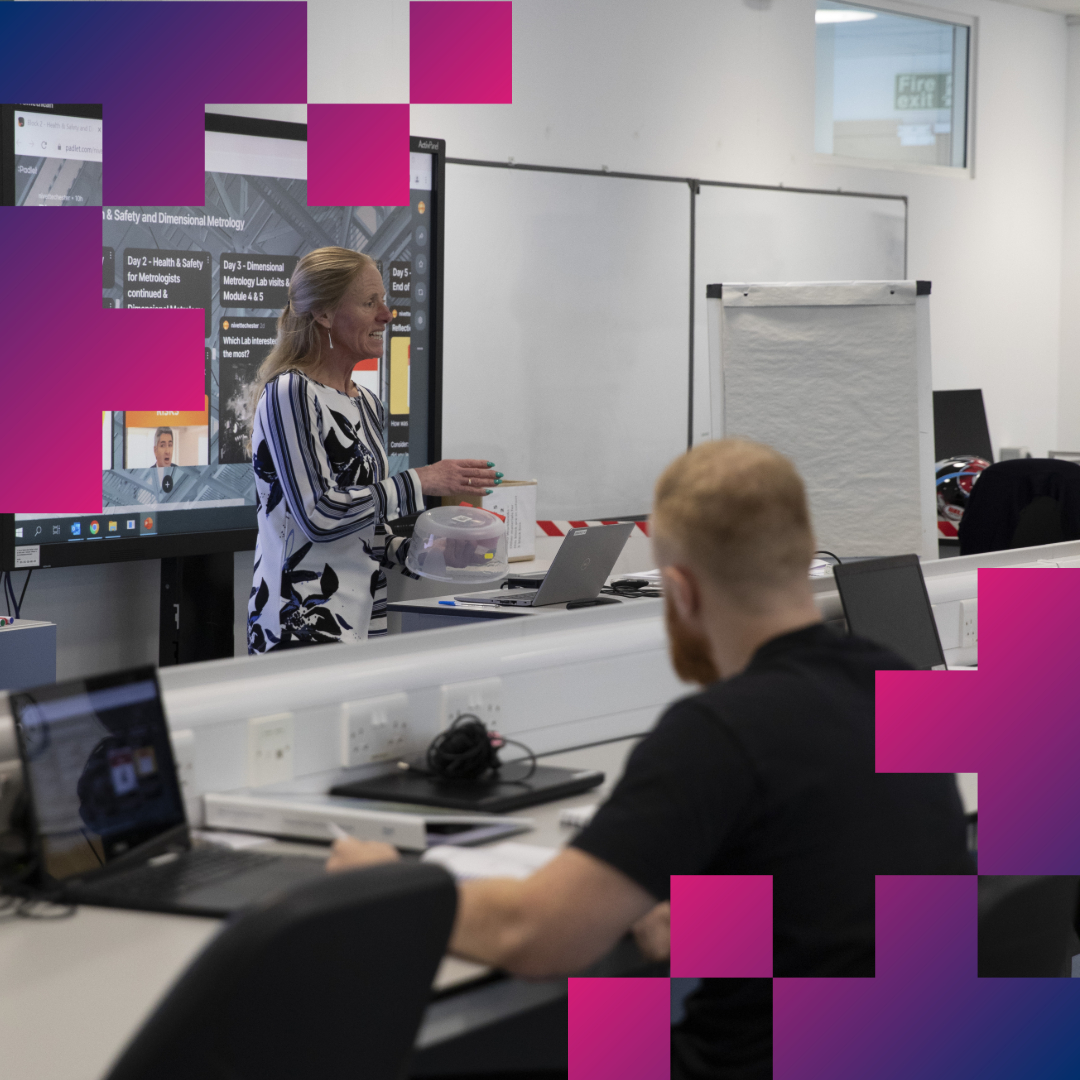
Our flagship e-learning course, 'Introduction to Measurement and Metrology', provides learners with the overarching principles of measurement and metrology. This course includes overviews of important concepts such as the SI units, measurement uncertainty, calibration and traceability.
We also have a three-course learning pathway for anyone interested in developing their knowledge around measurement uncertainty. In order of increasing technical difficulty, the courses are: 'Introduction to Measurement Uncertainty', 'Understanding Uncertainty Budgets' and 'Understanding and Evaluating Measurement Uncertainty'.
These courses provide a great jumping off point for learners to explore courses we offer in more specific fields, such as:
Our new ‘Fundamentals of Metrology’ online lecture series is a suite of courses available for private cohorts from industry and academia. This series is made up of seven deep dive modules into each of the SI units, including how they are defined, realised and applied.
Fundamentals of Metrology’s core purpose is to underpin metrology and best practice to upskill our population as well as support the STEM skills gap and address a gap in metrology teaching at postgraduate level,
With more than 8,000 learners worldwide and more than 50 courses for them to choose from, we welcome new and existing learners to find out more about our range of training courses on our NPL Training website.
Over 1,000 scientists, engineers and skilled professionals work together to deliver exceptional impact at the National Physical Laboratory (NPL). Our people make a huge difference, helping to tackle the UK’s most pressing challenges, and their efforts are rewarded and recognised by esteemed peers and organisations across the globe.
Alongside the many awards our people earn from external organisations, we award the NPL Fellowship - a recognition of individual merit awarded to scientists making notable contributions to our scientific achievement and standing, as well as acknowledging leadership of our multidisciplinary teams.
We take great pride in the number of NPL people who are awarded honours throughout the year for their scientific or community contributions.
These awards not only demonstrate the breadth and level of expertise at NPL, but also the strength of our partnerships with academia, industry and government, across the UK and beyond. From apprentices to our board, we celebrate our colleagues at every career stage.
Here is just a small sample of the achievements of our people.
Head of Science for Time and Frequency, Dr Helen Margolis has made notable advances to her field throughout her career at NPL.
In 2022, Helen was named as Senior NPL Fellow in Optical Frequency Standards and Metrology. In 2023 she received two prestigious international awards; the I. I. Rabi Award and the European Frequency and Time Award. These awards recognise Helen’s exceptional technical contributions and leadership in the field of optical frequency metrology and the development of high accuracy atomic clocks, including her contributions in progressing the redefinition of the SI second
Read more about Helen's career
“I was delighted to receive these accolades, particularly at such an exciting point for time and frequency at NPL. The international awards recognise the advances our team have made towards an optical redefinition of the second, many of them in collaboration with other national metrology institutes across Europe and beyond. The Senior Fellowship also recognises my contributions to the development of new resilient timing infrastructure for the UK – a hugely important endeavour which I am proud to be playing my part in.”
NPL scientist and former apprentice, Saskia Burke, was awarded the Institute of Physics technical skills award, which recognises the significant contributions that technicians and apprentices make to physics. The technical skills award is unique in the UK and Ireland and also recognises employers that demonstrate their commitment to scientific and engineering apprenticeship schemes.
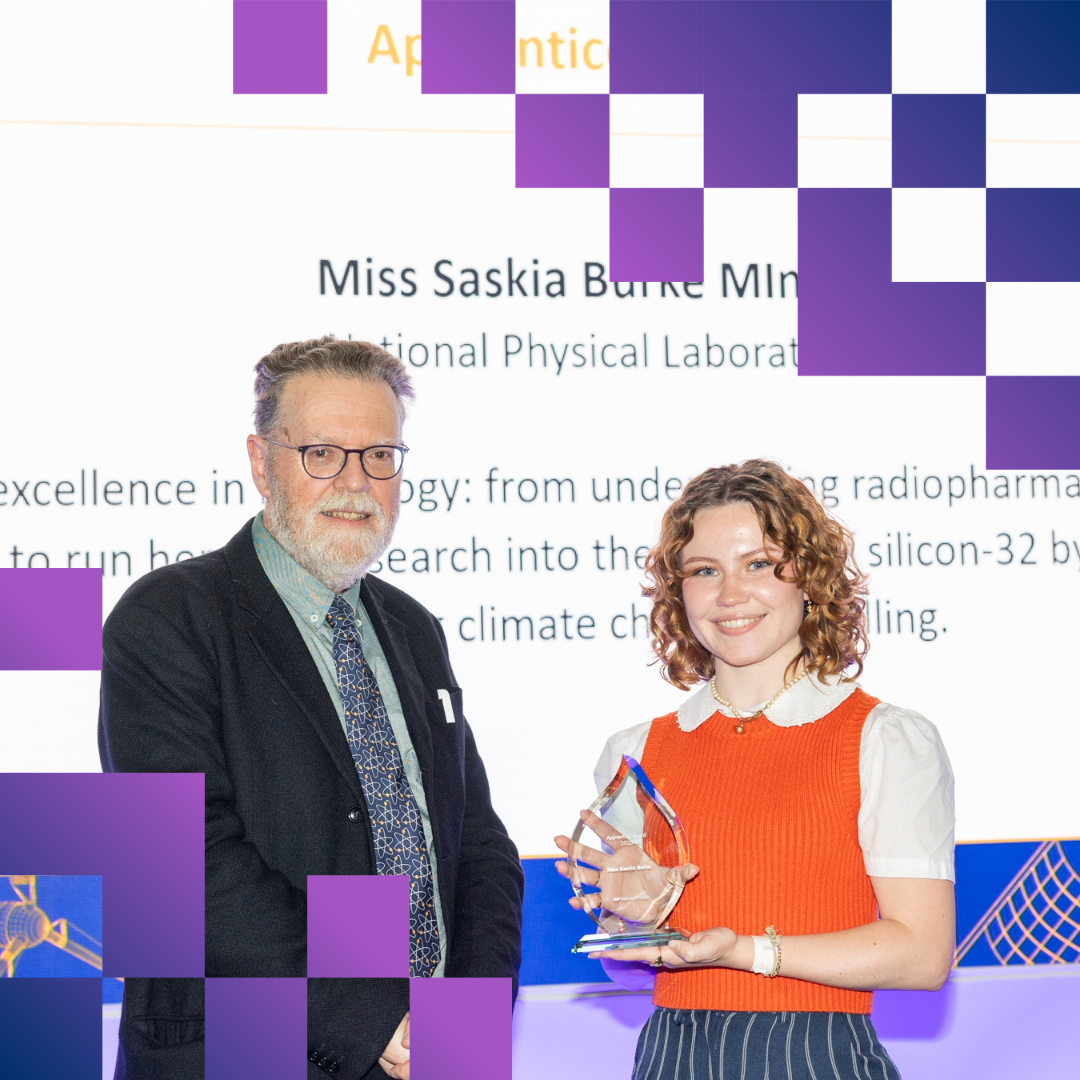.png?lang=en-GB)
I’m honoured and proud to have received the IoP apprentice award. I feel incredibly lucky to represent some brilliant work with great teams who have supported me throughout my apprenticeship journey. A massive thank you to the Institute of Physics, NPL and NPL’s Training Delivery team. I look forward to seeing what my future in science holds, and my apprenticeship will always be the bedrock of that career.
Saskia Burke
In 2024, Senior NPL Fellow in Thermometry, Professor Graham Machin was elected as an Honorary Fellow of the Institute of Measurement and Control, in recognition of his globally leading decadal contributions to the field of temperature measurement. He was also appointed Honorary Professor of the University of Glasgow and visiting Professor at the University of Strathclyde in recognition of his cutting-edge research into quantum thermometry.
In addition, Graham was recently elected a Fellow of the Institute of Physics and Engineering in Medicine (IPEM) for his long-standing contributions to clinical thermometry and thermography. In this regard Graham was recognised nationally, when he was appointed the first Chair of the UK Body Temperature Measurement Group, and internationally, when he was appointed Chair of the CCT Task Group on Body Temperature Measurement. Both groups went on to make important advances in raising awareness and improving the practice of body temperature measurement and fever screening, especially during the COVID-19 pandemic.
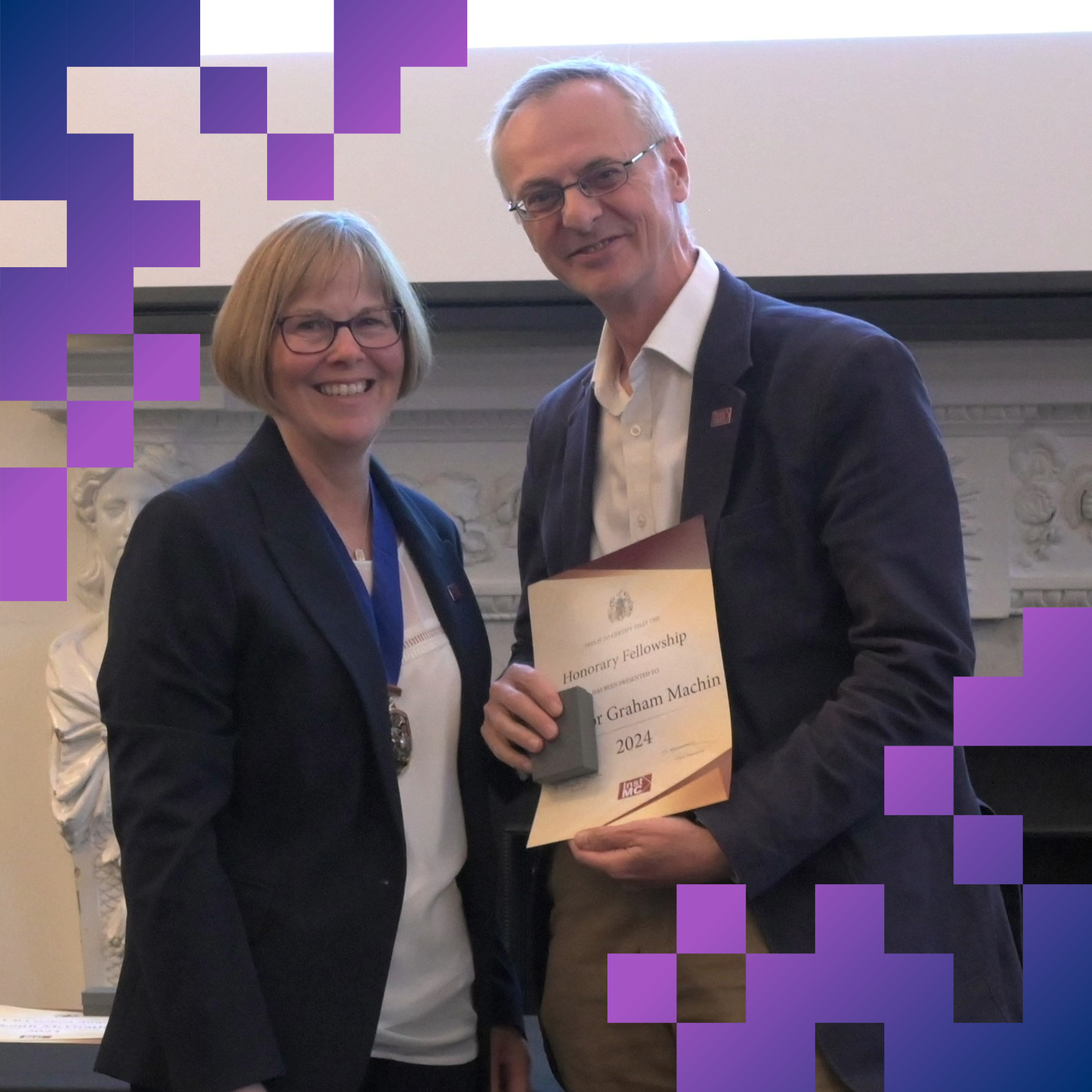
I’m hugely grateful to the InstMC, IPEM and the Universities for acknowledging these achievements. Our work at NPL is crucial to many industries and my area of expertise is very rewarding to work in, especially when it comes to contributing to the improvement of health and life sciences and driving advances in measurement science. I’m delighted to be a member of these professional bodies, and I look forward to further applying my knowledge to clinical and other applications
Graham Machin
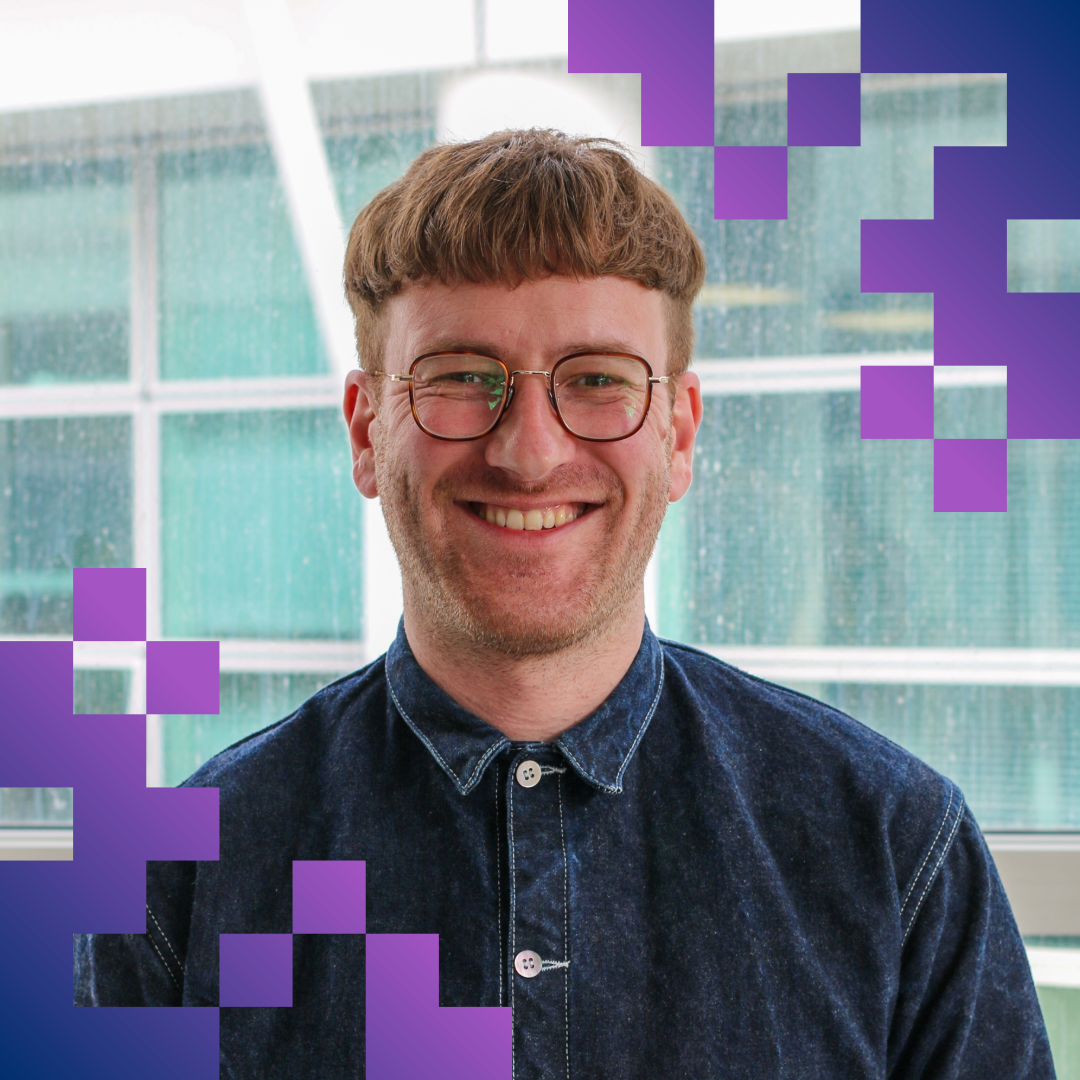.png?lang=en-GB)
In 2023, UK Research and Innovation (UKRI) announced 75 new Future Leaders Fellowships (FLF), funding research projects across a huge range of disciplines to tackle major global issues. The FLF programme is designed to support talented researchers in universities, businesses and other research and innovation environments to develop and tackle ambitious, challenging, and important research.
Dr Rory Steven, a Senior Scientist at NPL, works across a variety of applied and fundamental areas within mass spectrometry imaging (MSI).
We spoke to Dr Steven about his work and what led to this exciting opportunity.
My work at NPL includes diverse areas including the study of diseases such as cancer, development of new ionisation technology and the metrology and fundamental characteristics of laser and solvent sampling in Mass spectrometry imaging (MSI).
Mass spectrometry (MS) encompasses lots of different instruments and methods that allow us to measure exactly what a sample is made of – its molecular or atomic composition. MSI typically extracts material from a sample surface using a probe like a laser, ion beam or ionised spray of liquid droplets. The ionised (electrically charged) material ejected from the sample surface is then measured in the mass spectrometer and we can measure its molecular identity – all the molecules and atoms that make up the sample.
To study the mechanisms of diseases like cancer, we need an in-depth understanding of the thousands of molecules and atoms that make up a piece of diseased tissue. Doing this helps us understand what makes a cancerous tissue different to healthy tissue.
MSI provides us with powerful information but has some limitations, like ‘matrix effects’. This happens when there are changes in the signals we measure from a sample, because of the material the sample is made from, and it means we don’t get a fully accurate picture of what’s happening.
My fellowship seeks to study these challenges in multiple MSI technologies so that we can improve our methods and instruments, and try to make that picture more accurate. In the long term, this will help us understand how cancer cells behave.
The overarching aim is to develop MSI as a widely used, highly reproducible, and impactful tool in disease research, drug discovery and clinical applications. It is really important that other scientists are able to use the same equipment and methods as us, and get the same results.
This will mean that scientists and researchers can find new ways to develop drugs and therapies for diseases, because they will be better able to identify how to treat diseased cells without harming healthy cells – this is known as finding drug ‘targets’. It will also help scientists find better ways to diagnose diseases earlier and more accurately. Advancing MSI will be a big part of moving towards those goals.
Working with motivated, highly talented colleagues and collaborators is number one. The fact I’m fortunate enough to do so across a range of interesting and complex research and measurement projects is the icing on the cake.
I was honoured to be successful as a round 7 UKRI Future Leaders Fellow applicant. To some extent it was uncharted territory for NPL, certainly it was for me, so I am very proud to achieve this outcome. However, there will be many other successful applicants for this and other fellowships at NPL in the future and the success of the 5th NPL fellowship awardee will be equally impressive as the first. In the meantime, I will be doing what I can to help others achieve success and learn from my experiences.
Diversity and inclusion are critical to our vision to deliver extraordinary impact from our excellent science and engineering as an exemplary National Laboratory. Different perspectives, life experiences and backgrounds lead to better work, a fairer culture and sense of belonging amongst our staff. When an organisation adopts a strong approach to diversity and inclusion, the rewards are seen not only in staff wellbeing, but also in innovation and tangible business outcomes.
Our Stronger Together, Everyone Matters campaign aims to share real people’s hidden stories, fostering an environment where our staff feel seen and heard. We have now opened the campaign to external partners. It is important to us that the campaign reaches as many people within the science, technology, engineering and maths landscape to inspire and engage the next generation and to let young people of all backgrounds know that there is a place for them in STEM careers..
Our CEO, Dr Peter Thompson talks about diversity and inclusion as part of our Stronger Together Everyone Matters campaign launch.
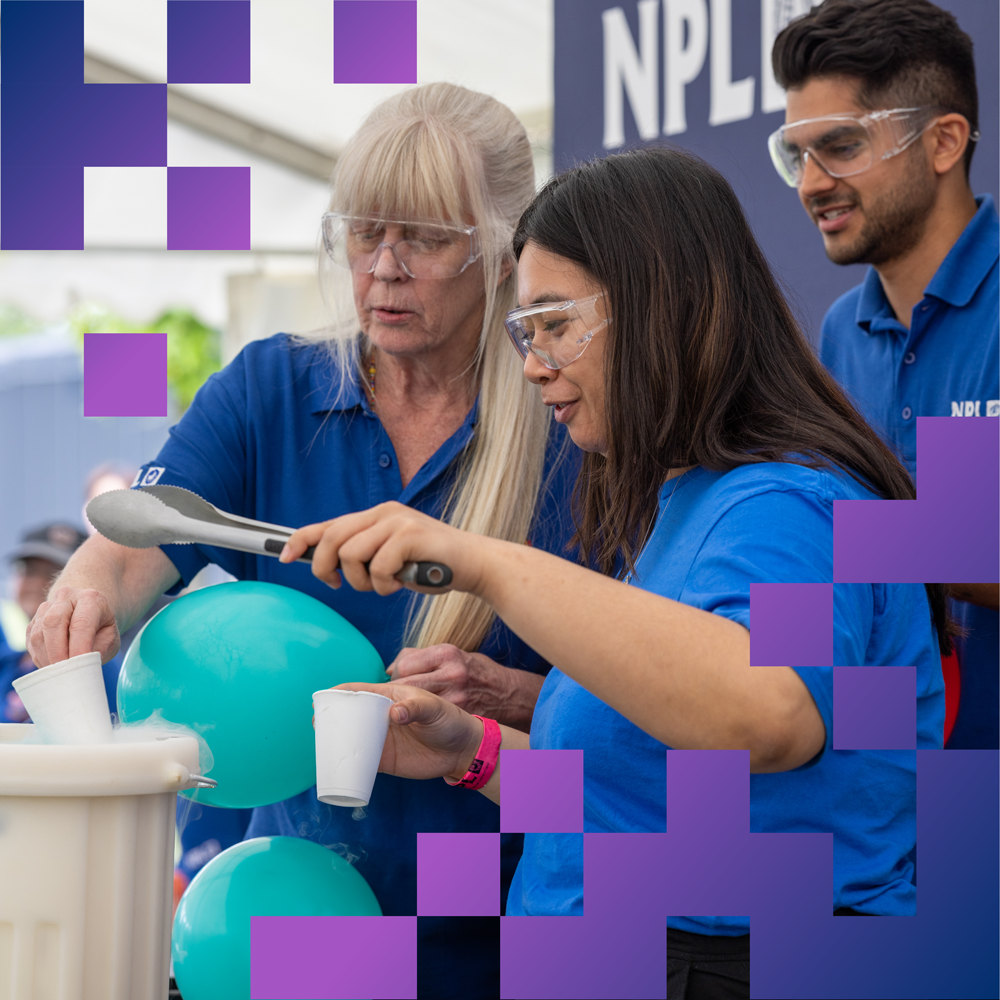
In 2023, we launched the use of an inclusive online toolbar, Recite Me, on our external website to enable visitors to access online content in a way that best suits them.
Around one in seven people have some form of neurodivergence and one in five have a disability and/or long-term condition. This means that many of our stakeholders can have accessibility needs that we might not be aware of. To improve the experience for visitors, we offer a wide range of accessibility and language support tools to customise their digital experience.
As we encourage new users to visit our website, we hope that the toolbar will allow more people to have a positive browsing experience and welcome more people into the world of STEM.
In 2024 we launched The measure of us our pledge to every member of the NPL community, wherever they are in their journey with us. We celebrate the things that people most value about working with us and use it to guide our future. Keeping our pledge creates a great employee experience, felt by all. Rooted in our purpose, culture, and values, it is how we measure up as an employer.
NPL inspires curiosity, sparks imagination, and cultivates the next generation of scientific pioneers, as well as inspiring public confidence in science where it matters most.
Early career scientists are a key talent pipeline for NPL, providing great benefit to the organisation as well as a valuable opportunity for individuals. In 2023, we launched our Graduate Scheme, with 32 graduates joining across eight of our Science and Engineering Departments.
We remain invested in apprenticeships across NPL and have recruited over 140 apprentices since 2013. We currently have 24 apprentices across our science and engineering programmes, filling our talent pipelines for the future. We have continued to invest in upskilling our apprentices, with various schemes to offer further development and growth opportunities.

We take great pride in supporting Britain’s national Science Week every year. It allows us to engage with school children and the general public around a key scientific theme. This year we celebrated in the historic Square Mile in the City of London with a demonstration of Einstein’s theory of relativity. It involved placing a highly accurate atomic clock on the 61st floor at 22 Bishopsgate, the tallest building in the City of London, and comparing it to a second clock located at NPL, in Teddington, south-west London, the home of time in the UK.
When the two clocks were reunited, the time on the clock that was at 22 Bishopsgate was measured to have gained an additional 100±30 nanoseconds compared to the clock that stayed at NPL, entirely in agreement with Einstein’s prediction that time does travel faster the higher up you are. This means the clock would need to spend around 1 million years on the 61st floor at 22 Bishopsgate before we would see one second of difference between it and a clock at ground level.
Our ability to measure time to this accuracy helps drive economic growth for the UK with trusted timestamping for the finance sector down to the millisecond. You can find out more about our commercial time services, NPL Time Certified® and NPL Time Access® on our website.
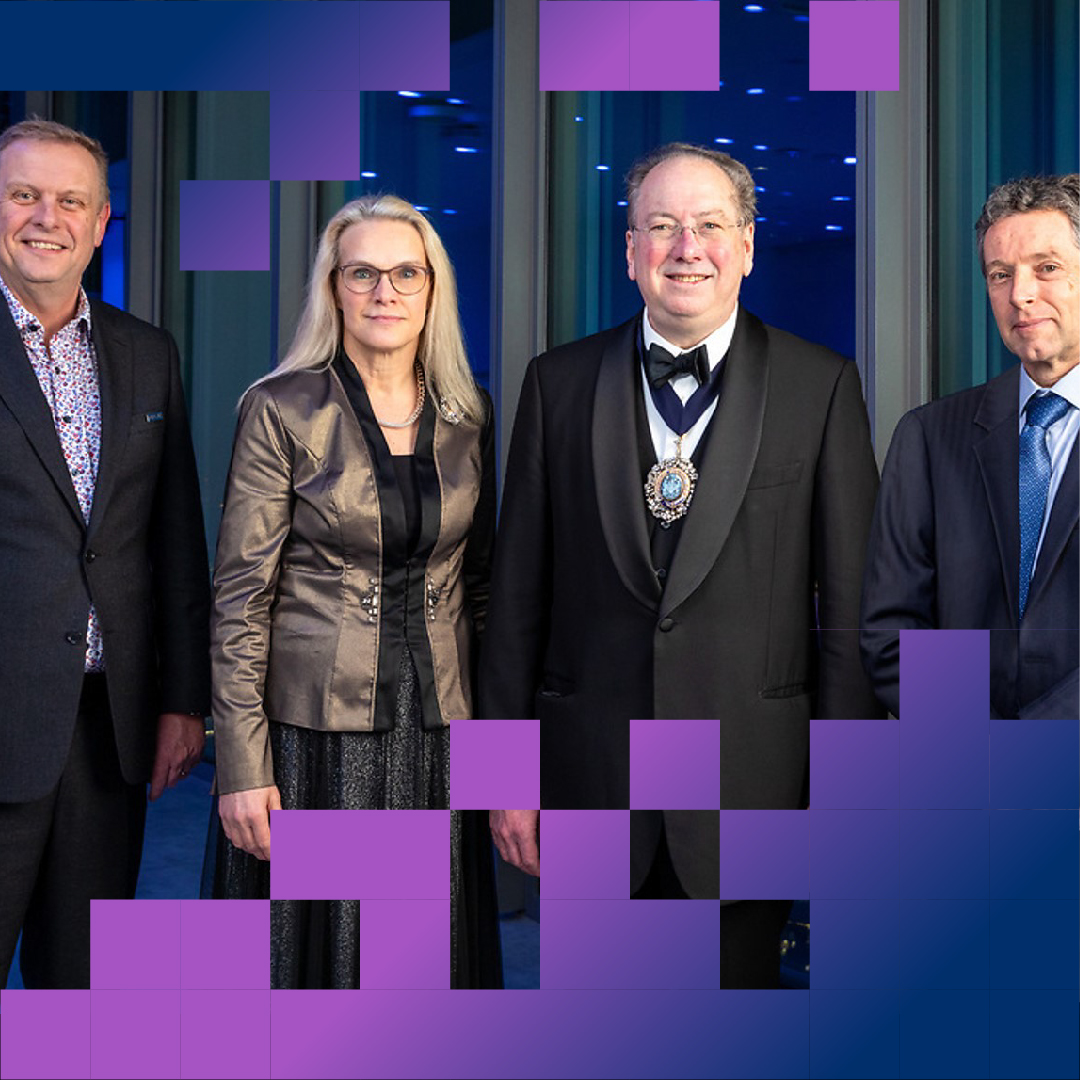
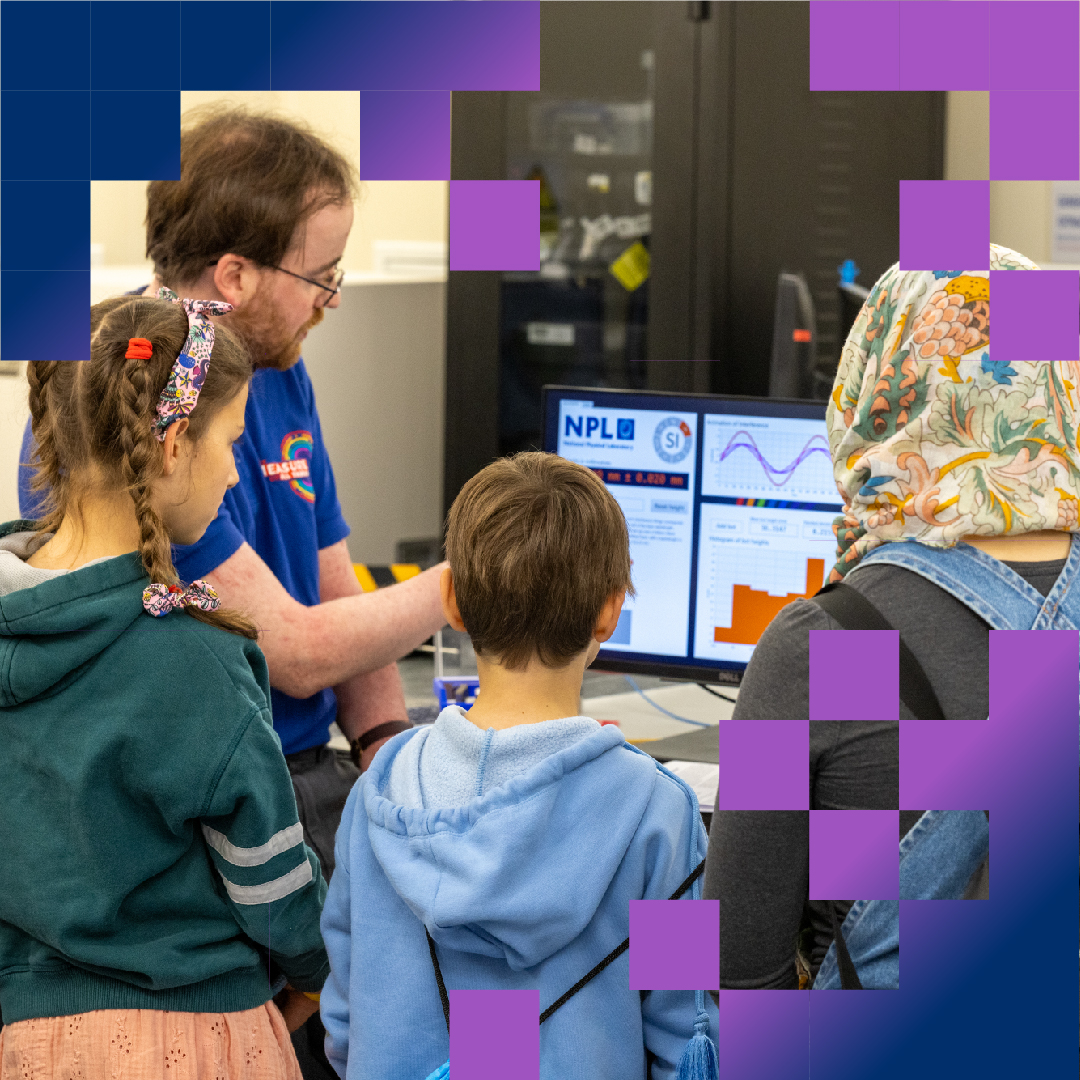
Our Open Day is a special occasion where we open our doors to the public to experience our science and engineering for themselves. This year we welcomed nearly 3,000 guests to our Teddington site, including NPL alumni and the budding scientists of tomorrow. For many people, Open Day is their first glimpse of a real laboratory at work, and we hope to see many of our guests back in future as scientists.
Collaborating with The Blackett Lab Family as part of their Representing Physics summer experience for year 11 and 12 students, we supported 30 promising students of black heritage on their journey towards scientific excellence. By fostering talent and providing resources, NPL continues to nurture the bright minds of tomorrow.
Our NPL Academy programme gives young aspiring scientists the opportunity to come and see what working in an exemplary national laboratory is like. In 2023, NPL Academy provided 67 bright minds from 35 schools with a sneak peek into the fascinating world of professional work – the largest cohort in the history of the scheme 70 NPL people facilitated this activity hosting students in 13 areas including Marketing and Communications, the International Office, Quantum Electrical Metrology, Advanced Engineering Materials, Data Science, and the National Centre of Excellence in Mass Spectrometry Imaging. Over half of last year’s aspiring young scientists were women, and we hope to see all of them building careers in the thriving UK science and technology sectors.
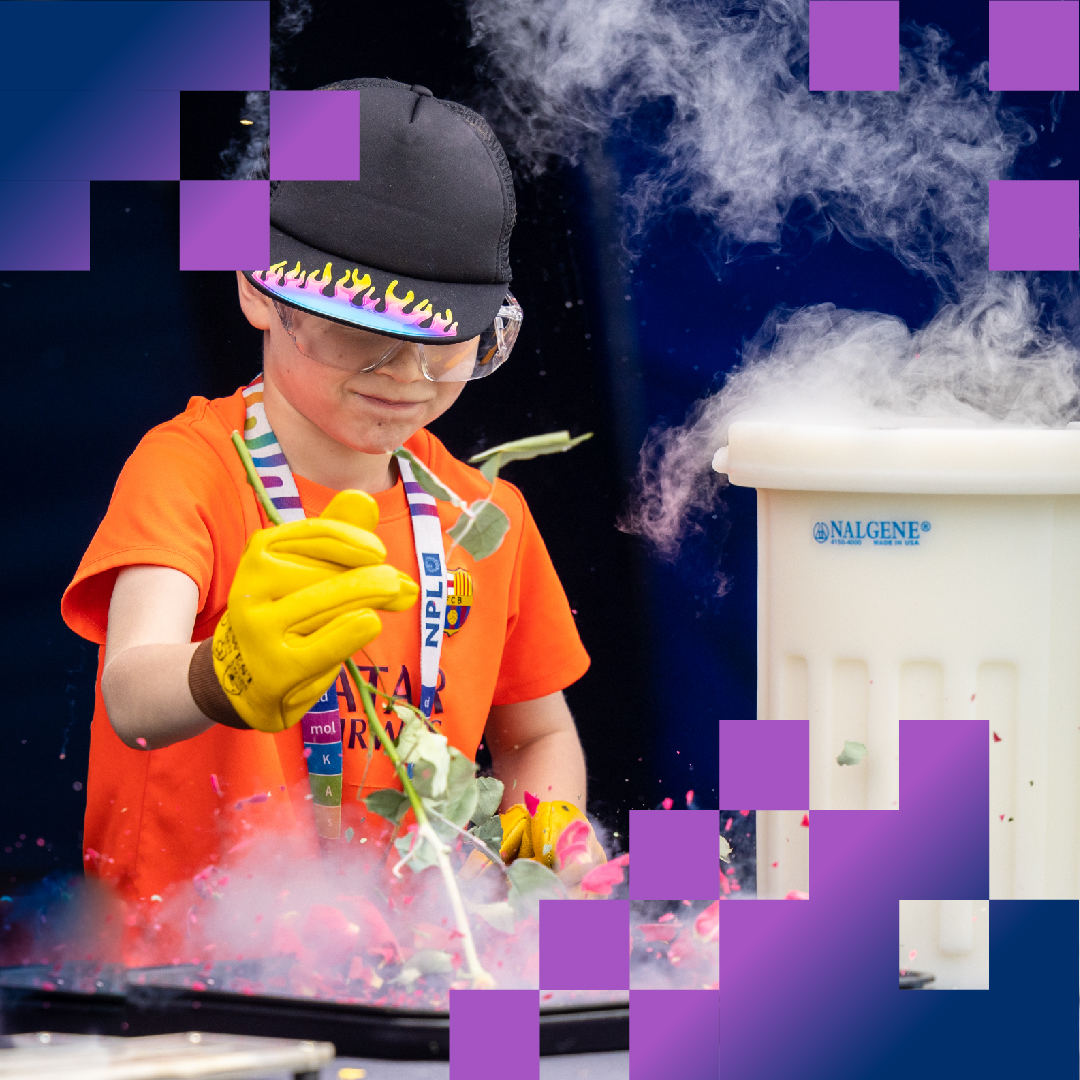
We opened the doors of historic Bushy House in September 2023 and welcomed nearly 3,000 visitors. The day was a testament to NPL's dedication to public engagement and attendees had the opportunity to explore the wonders of science through interactive exhibits and engaging demonstrations from our experts.
Our NPL Water Rocket Challenge is a 25-year institution, and each year it goes from strength to strength with teams busily engineering the best bottle-rockets they can. With water as a propellant we don’t ignite our rockets, but we ignite a passion for physics and engineering in participants of all ages, giving them hands on experience of Newtonian physics just yards from Newton’s own apple tree in our historic grounds.

Our research and measurement solutions support innovation and product development. We work with companies to deliver business advantage and commercial success.
Contact our Customer Services team on +44 20 8943 7070